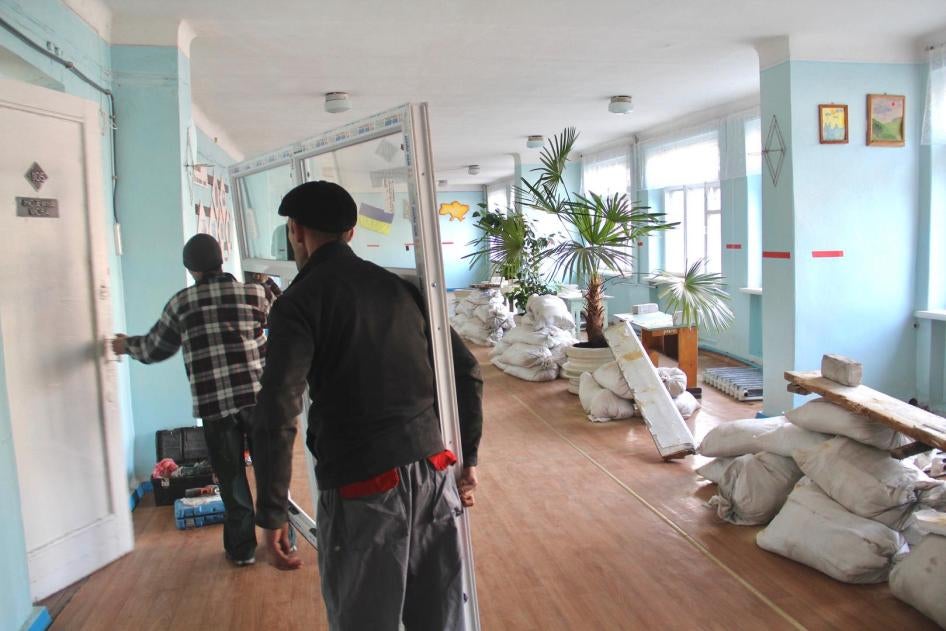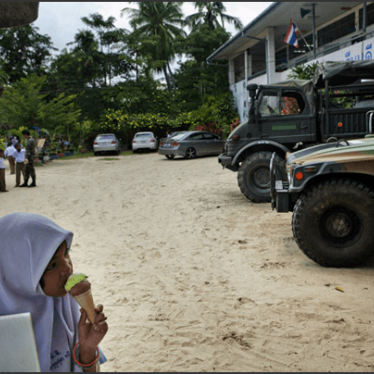I was confused by the horizontal strips of red tape stuck to the walls of School Number 1 in Marinka, a small city in the government-controlled area of eastern Ukraine. The principal explained that in case of attack, students should shelter with their heads below the red lines to avoid injury from a nearby explosion.
I visited the school in November 2015, amid the conflict that began in 2014 and continues today.
The dangers from explosive weapons used in populated areas were the focus of a two-day international conference that concluded today in Vienna, Austria. More than 130 countries attended to discuss how to reduce the harms caused by these weapons in towns and cities.
Experts explained that wounds from explosive weapons with large area effects, as they are known, can be especially severe for children, whose smaller and still-developing bodies are particularly vulnerable, and that children are especially difficult to treat and rehabilitate.
When the spaces that children need to be safe – homes, schools, and hospitals – are damaged or destroyed, there are also knock-on effects on their rights to shelter, health care, and education.
In a major development, the conference concluded with nearly universal support for developing a politically binding commitment by governments to take steps to address this problem.
Many agreed with the position of Human Rights Watch and the International Network on Explosive Weapons that the most important step would be a commitment to stop or at least avoid the use of explosive weapons with wide area effects in populated areas. Austria and Ireland will now champion consultations in Geneva to draft such a declaration, with the next meeting on November 18.
All countries committed to minimizing the harm to civilians caused by bombing and shelling cities, towns, and villages should support this process as it continues in Geneva. A political declaration should address both the immediate and reverberating effects when explosive weapons are used in populated areas. It should include a commitment to assist victims in a non-discriminatory manner and facilitate humanitarian and protection measures.
The declaration should help build a community among countries committed to making progress in this area and allow them to share positive practice and experiences, so that children everywhere never have need to duck and cover in school.








